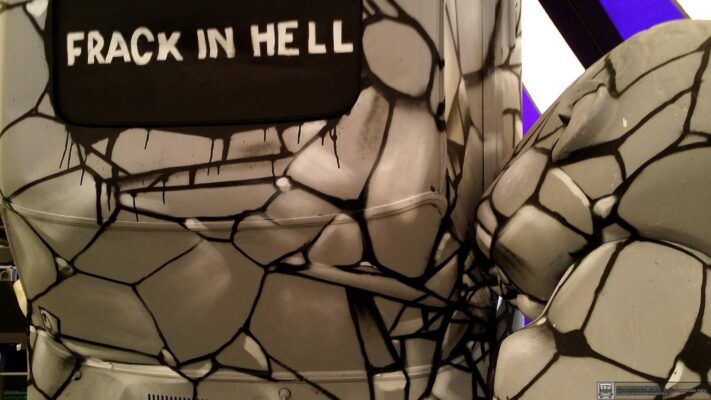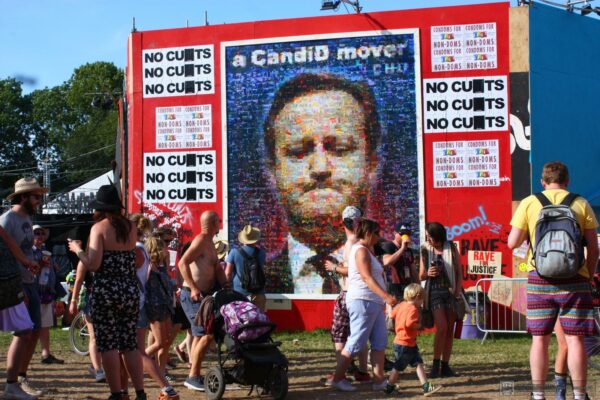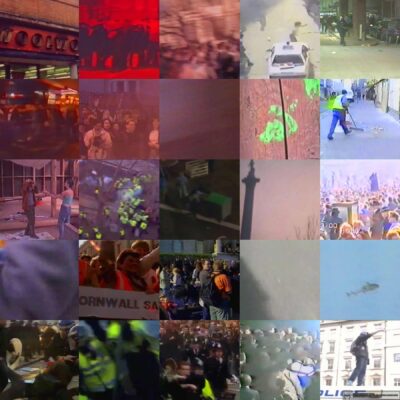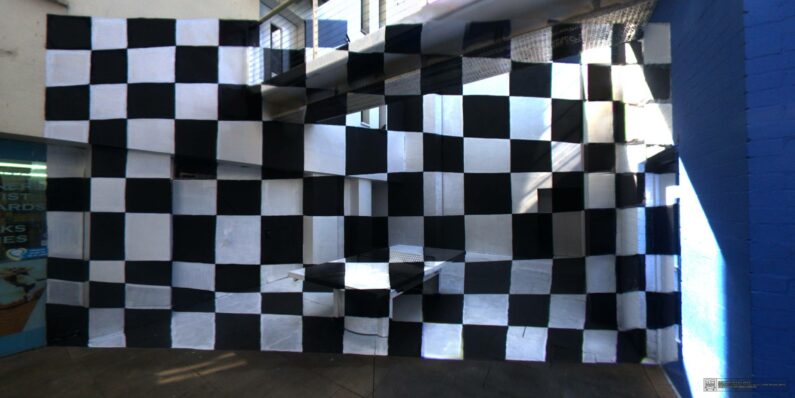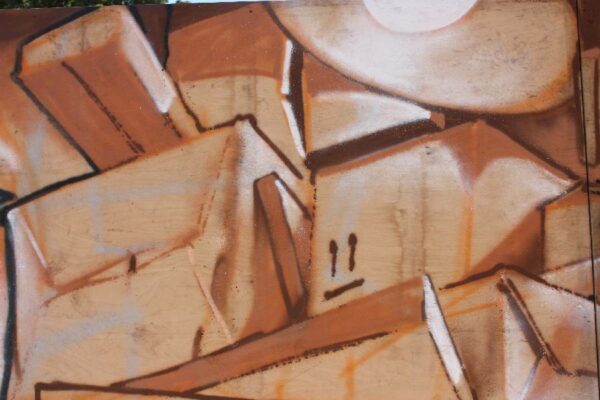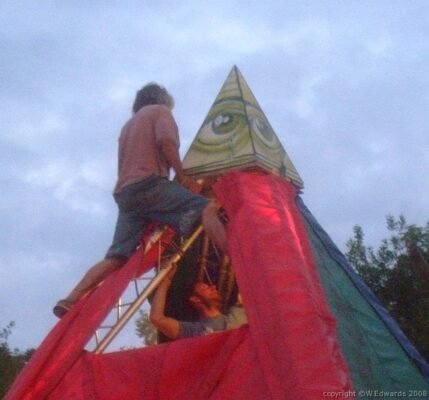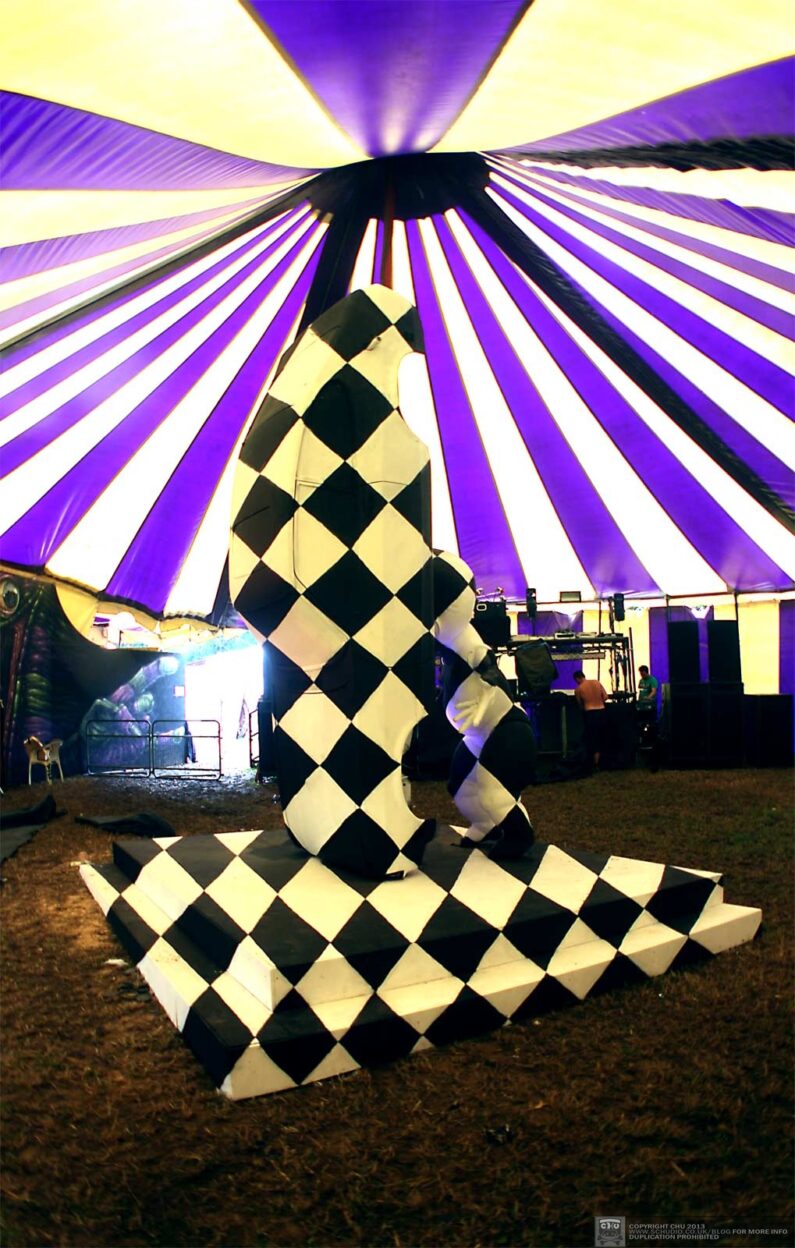
Visitor’s to the Glastonbury Unfairground field this year could see my latest illusion right in front of one of the stages.
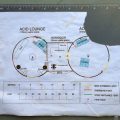
Sam Haggarty invited me to paint alongside Dotmasters, Teddy Baden and the fantastic Zadok way back in November last year. The concept even as far back as then was that it was a 6m high sculpture of a nose-down Capri and a Baby beside it or upon it somehow. This was to grace a riser plinth near the entrance to one of the dance tents, namely Bez’s (Happy Mondays) Acid House.
Process
From the designated access points I calculated the most efficient way of painting the sculpture. Detecting which surfaces are visible from doorways and which viewpoint would give the widest surface to paint. There was enough time in the schedule to cover the ‘other side’ of the sculpture too, there were two viewpoints after all.
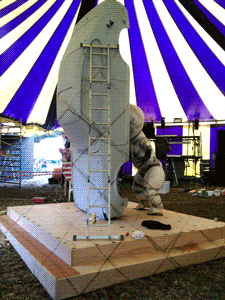
The chequers would travel across the baby’s form too, as well as the floor – after making the first division of chequers I knew I could make them more dense, double their frequency – and still use the same amount of paint. For this angle I chose a compromise of a slight rotate (Too Dimensional) and an upright (De Buurvrouw or See No Evil) – making a 45°/135° array.
I should say at this point that all of the painting and marking is painted by eye and hand only. Some of the more entertaining questions for which I had very little, or short response – “How come its took you 6 hours to paint 12 lines?”, “When are you starting?”, “Are you painting anything over it?”, “I thought you were tripping, just staring at it for hours”, “Why don’t you use a projector so you can get on with other stuff?”…
The distortion of the plane is an exercise in MANUALLY painting a surface without sketches or equipment other than aerosol, in such a way as to cause a disturbing anamorphic projection. Large-scale preferably.
The group of squares (or chequers) includes a 13 by 12 grid, also as a result of these hours of contemplation and “tripping”.
Other views
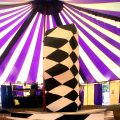
Obsessed to get the ‘final’ photographs I have epically failed to get many shots of the other viewpoints inside the space. What I really wanted to do was take a photograph from the same height all around the tent, looking toward the centre with people inside it and without – merging the two in some sort of video sequence. Next time perhaps?
The surface of the baby that would face the ‘chequer viewpoint’ only requires painting in distorted chequer on the surfaces facing the viewpoint, leaving the other, continuous surface for an opposing viewpoint. This invisible/invisible edge has a less precise location than on a surface perpendicular to the viewpoint. It formed some great organic edges on the back and front of the baby.
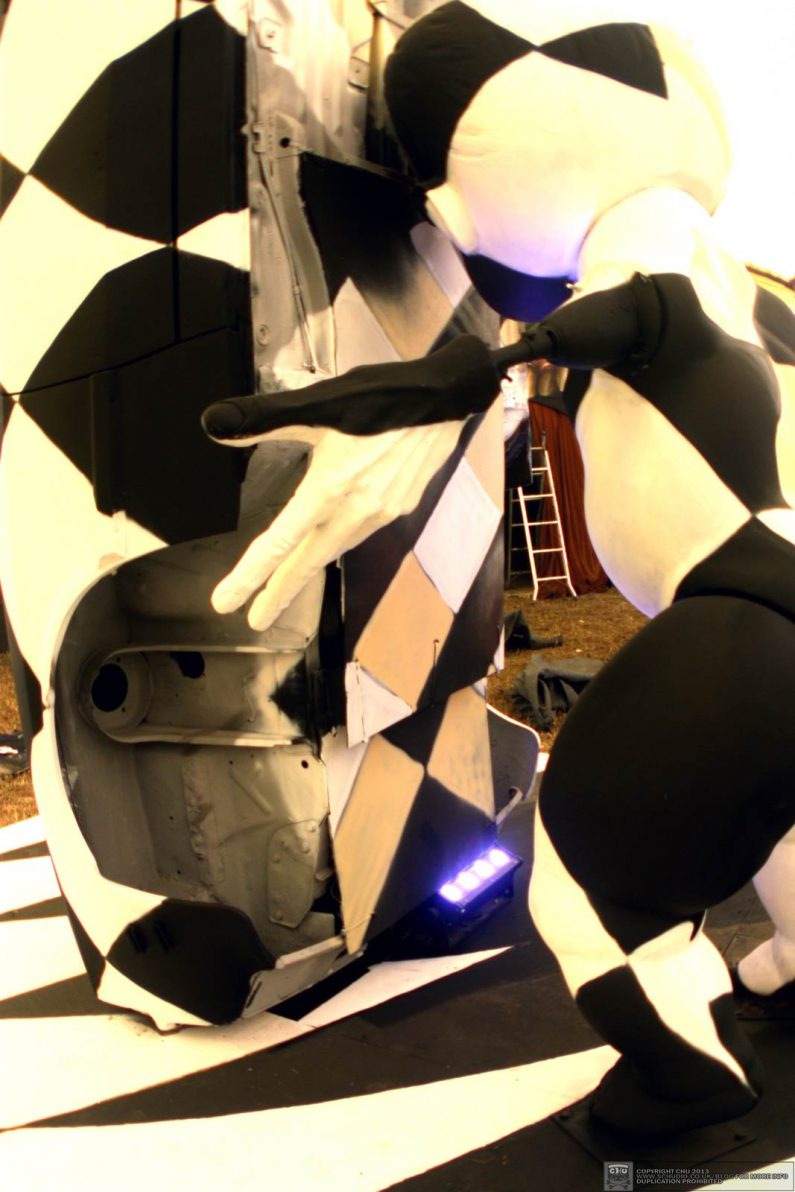
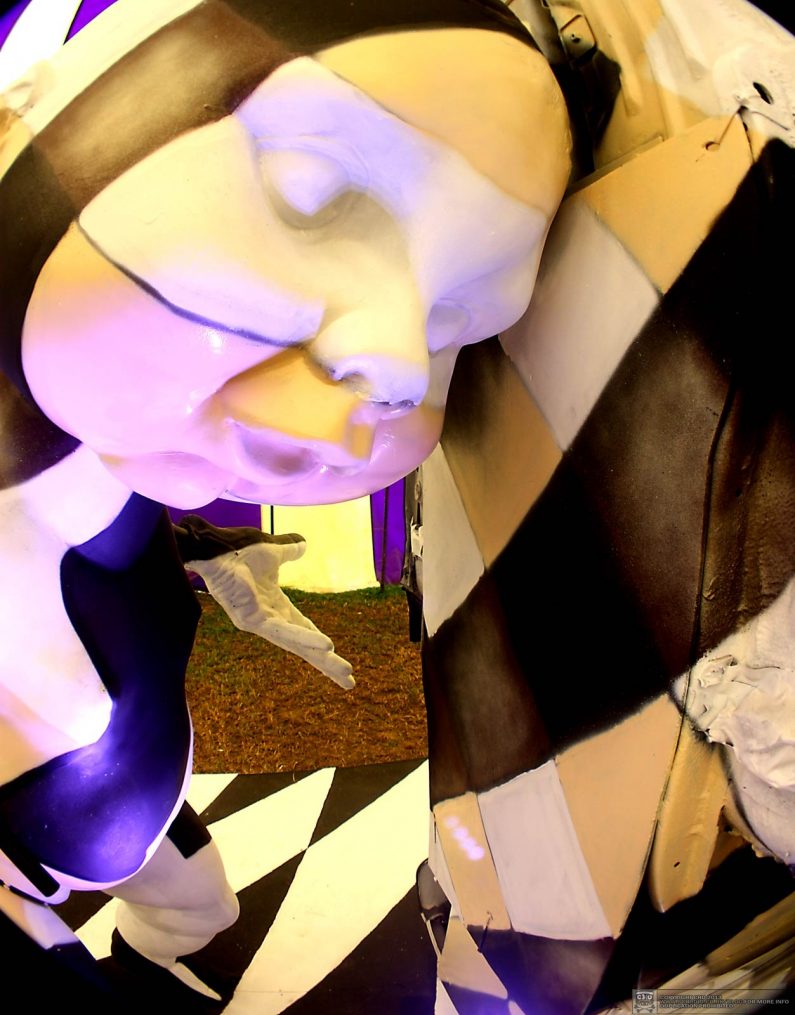
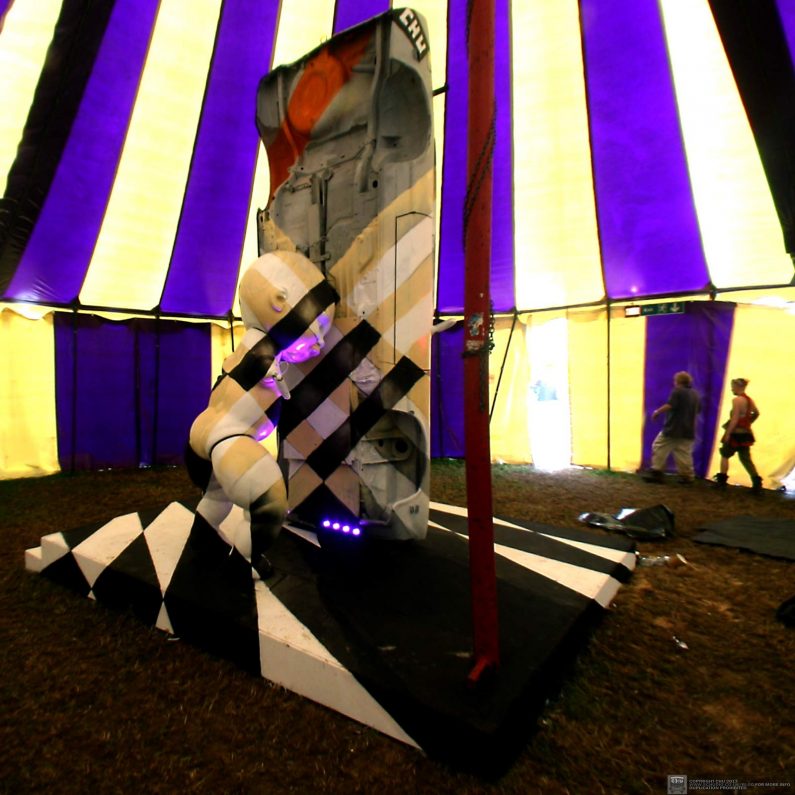
360° panorama
I urge you to stop by the actual site to see the 360° panorama for yourself. You can drag the view around by click and dragging, or the gyroscope allows you to tilt the view on a mobile such as iPhone.
Mobile – Zoom with Pinching
Mac/PC – Zoom with CTRL/SHIFT
CLOSE the panorama by clicking on the background or the ![]() button.
button.


